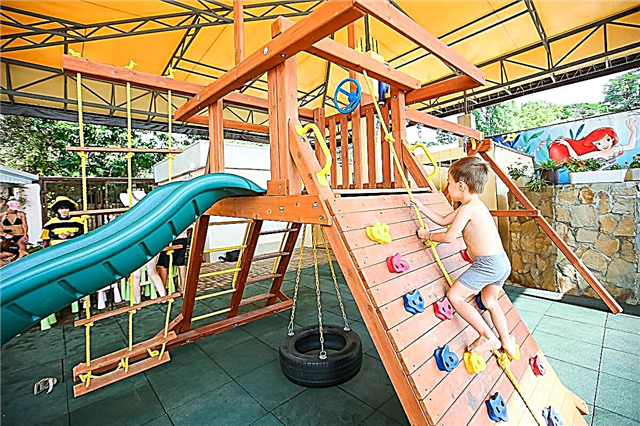A child of any age can get sick with an acute respiratory viral infection. Babies are also not immune to infection. Often with a viral disease, babies complain of abdominal pain. This can be a reaction to treatment of an infection or a symptom of a pathology of the digestive system. The reason will be determined only by a doctor, who must be consulted.

The baby is crying
Symptoms of viral infections in children
Children of the first years of life often get sick with ARVI, there are cases of influenza infection. Their immunity is just being formed, so they are not always ready to resist the attack of viruses.
Infectious diseases are accompanied by the appearance of symptoms:
- Increased body temperature;
- Weakness, drowsiness;
- Refusal to eat;
- Stool disorder;
- Behavior change, moodiness, irritability;
- Bad sleep.
Older children, when they become ill, may complain of muscle and joint pain, which usually accompanies the flu, along with a sharp jump in temperature. With some viral infections, nausea and vomiting are observed.
Pain in the abdomen with ARVI
With a cold, the child may have a stomach ache. A baby is not able to explain exactly what the problem is, but from changes in behavior, refusal to eat and poor sleep, one can understand that something is bothering the baby. An older child will be able to point out the place where he is experiencing discomfort: in the stomach itself in the solar plexus region or, for example, in the lower abdomen. Do not ignore this symptom when contacting a doctor.
Abdominal pain in infectious diseases can occur for the reasons:
- At high temperatures, the number of ketone bodies increases. At the same time, the child's mouth may smell like acetone, it is also found in the urine. One of the signs of pathology is pain in the abdomen;
- Uncontrolled use of drugs, especially antibiotics, that negatively affect the functioning of the digestive system. Unpleasant symptoms can be a side effect after using drugs;
- Influence of a large amount of snot swallowed by a child. More often, digestive upset causes purulent discharge with a severe runny nose.
Abdominal syndrome
In pediatrics, the term abdominal syndrome is used to refer to pain affecting the abdominal organs. It can be associated with a variety of diseases or injuries and can lead to a condition called acute abdomen. It is characterized by severe pain, fever, lack of stool, and bloating. Such symptoms usually require surgery and may be signs of appendicitis, intestinal obstruction.
Note! Pain sensations of varying intensity and character, tingling, burning sensations appear in the abdomen. Any discomfort that persists for a long time should alert.

Child complains of pain
Causes and mechanisms of development
Abdominal syndrome occurs when the intestinal walls are stretched, increased peristalsis. It is also provoked by inflammation of the mucous membrane of the abdominal organs, ischemia. In the latter case, blood circulation is impaired. Problems with blood vessels lead to a malfunction in the functioning of the organs of the digestive system.
In children, first of all, pain occurs due to the fact that intestinal motility is disturbed. This happens with a lack of enzymes, a violation of microflora, a decrease in the activity of immunity. Such conditions provoke self-medication, improperly selected dosages of drugs, and their prolonged use. Infections can also undermine the immunity of the baby, disrupt the functioning of organs. Less often, pathologies in the development of organs, congenital or acquired, become the cause of problems with motor skills.
Manifestation of the syndrome in ARVI
In addition to abdominal pain, symptoms may occur:
- Nausea, vomiting;
- Weakness;
- Upset stool, diarrhea, or constipation;
- Belching;
- Heartburn;
- Weight loss;
- Temperature rise.

Fever and weakness
It is important to understand in time if the child has problems with the work of the gastrointestinal tract. Most often, they suggest intestinal flu or rotavirus infection, which is treated with other means, often unrelated to the cause that caused the discomfort. A visit to the doctor for abdominal pain is necessary in order to alleviate the condition of the child as soon as possible and not harm his health.
Diagnostics
Usually, to make a correct diagnosis, the doctor only needs to examine the patient. In case of abdominal pain, the main thing is to exclude pathologies requiring surgical intervention. A child, especially a small child, cannot explain what exactly bothers him, point out the place of occurrence of unpleasant sensations.
Note! A toddler may complain of pain, even if he has a rumbling in his stomach, or he has overeat. To understand why the child is experiencing discomfort, a specialist must examine him.
The task of the parents is to pay attention to the fact after which the pain appeared, where it arose, how long it lasted. You also need to remember whether there have been such cases before, and whether they occurred during or after an illness. It is necessary to tell what the child ate, what medications he took. After that, the doctor feels the tummy of the crumbs in order to understand what the discomfort is connected with.

The doctor feels the belly
If necessary, blood, urine, and feces tests are prescribed. You can check the condition of the digestive system using ultrasound.
Do you need medical help
A doctor's consultation is necessary for the child, even if the pain has disappeared. After a while, it can return, and without proper treatment, it can become chronic.
If you observe the following symptoms, you need to call an ambulance:
- The pain is very severe and comes on suddenly;
- There was a sharp rise in temperature;
- The child started vomiting;
- The baby experiences pain when going to the toilet, in particular, urination;
- Traces of blood are visible in the stool;
- A rash appears on the skin;
- The baby has become pale, sweats a lot, he is drawn to sleep.
Features of the treatment of infants
If a child under one year old has abdominal pain on the background of acute respiratory infections, it is better to observe him in a hospital setting. It is necessary to exclude the possibility of developing conditions requiring surgical intervention. Also, the baby should be under the supervision of the medical staff if he has diarrhea and vomiting at a high temperature. It is important to stay hydrated, which is very dangerous for babies. The child will have to be constantly given water, even through force. It is good if he takes 1-2 sips every 10-15 minutes.
The main task is to improve the work of the digestive system, restore motor skills. At home, the baby is shown light food, plentiful drink. He also needs bed rest and comfortable conditions at home.
Note! Medicines cannot be given without a doctor's prescription. If the pathology of the abdominal organs is not detected, then the child can be prescribed antiviral agents, drugs that normalize the intestinal microflora and eliminate enzyme deficiency.
Prevention of ARVI and influenza
To avoid viral diseases, you need to adhere to simple rules:
- Strengthen the immunity of the baby. Walk with the baby every day, always dressing according to the weather. Remember that overheating, like hypothermia, can cause significant harm to the body;
- Monitor the correct nutrition of the child and adherence to the daily routine;
- Provide comfortable conditions in the room. This applies to wet cleaning, ventilation, temperature. It is good when it does not exceed 22 degrees;
- Avoid public places during the cold season;
- Teach the kid to wash their hands after returning from the street;
- Maintain a drinking regime and do not forget about additional hydration of the mucous membranes. Dry air has a detrimental effect on the condition of a sick baby, harms a healthy child. Saline solutions can be instilled into the nose for prophylaxis.
If a child has a stomach ache with ARVI, it is imperative to tell the doctor about it. You can not give the baby drugs that stop discomfort. This can only harm him, provoking the development of pathology. You need to understand what exactly caused the discomfort, and this can be done only after consulting a specialist. The primary task of the doctor is to collect anamnesis by asking the parents in detail about the changes in the baby's condition.



